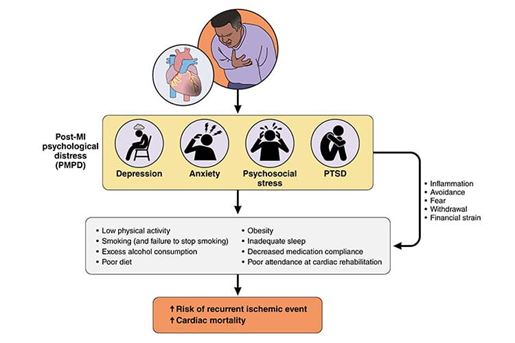Post-Myocardial Infarction Psychological Distress
Published: September 22, 2025

- Psychological distress in patients with cardiovascular disease is increasingly recognized as both a contributing factor to the development and progression of cardiovascular disease and a consequence of the development of cardiovascular disease.
- Patients with acute myocardial infarction (MI) are at increased risk for depression, anxiety, psychosocial stress, or post-traumatic stress disorder (PTSD).
- These negative psychological factors when occurring post-MI have been referred to as post-myocardial psychological distress (PMPD).